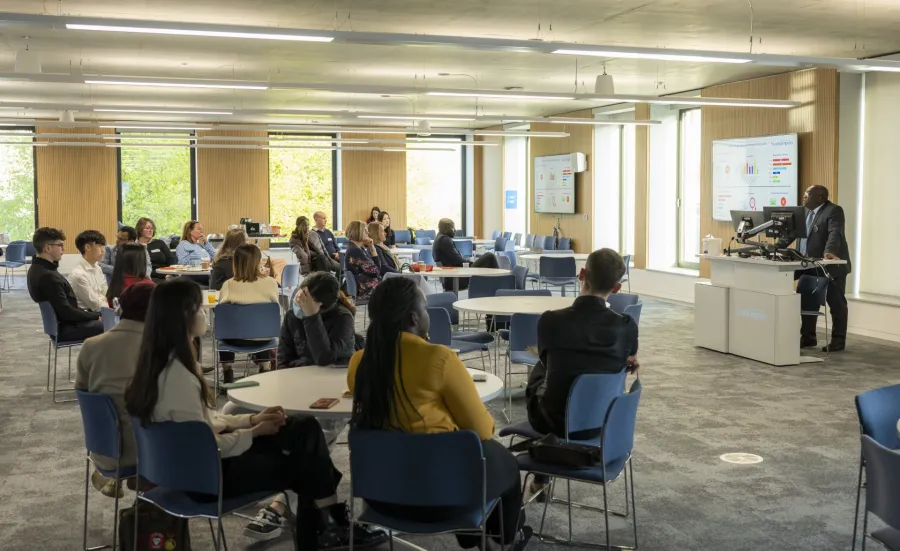Course details
- Start date: 7 January 2026
- Duration: 50 hours of training over 12 weeks
- Fee: £750 is all you pay to register, as the government covers 90% of the cost for this 12-week programme. We’ll refund the £750 registration fee when you successfully complete the programme.
- Study mode: blend of online and face-to-face sessions
- Location: B175, Boldrewood Innovation Campus
About this course
This government-backed course is delivered in collaboration with industry experts and experienced entrepreneurs. Southampton Business School is Small Business Charter accredited.
The course provides access to learning, mentoring and resilience strategies. We'll give you the tools you need to grow your business, fast.
As part of this course you will:
- receive 1 to 1 support from a mentor
- create a bespoke growth plan to help your business reach its full potential
- learn from peers and network with businesses just like yours
- become part of the alumni network of like-minded business professionals
- build a relationship with a QS ranked global top 100 University for future collaboration
Who this course is for
The course is for business owners, leaders, or senior managers from all business sectors. Charities are not eligible.
To be eligible, you and your business must:
- be a small or medium sized enterprise (SME) based in the UK that has been operational for at least one year
- employ between 5 and 249 employees (SMEs with more than 10 employees can send 2 delegates)
- be a member of the senior leadership team and have direct reports
Learning and assessment
To get the most out of the course, you must be a senior decision maker. You must also commit to attending all the scheduled learning sessions for the 12 modules.
If you complete all 12 modules you'll receive a certificate of completion.
The course gives you an opportunity to learn alongside like-minded business owners. It is delivered with a mix of scheduled online and face-to-face daytime sessions, enabling flexibility alongside your commitments.
As well as 50 hours of in-depth training you'll receive 10 hours of 1 to 1 support from a mentor.

